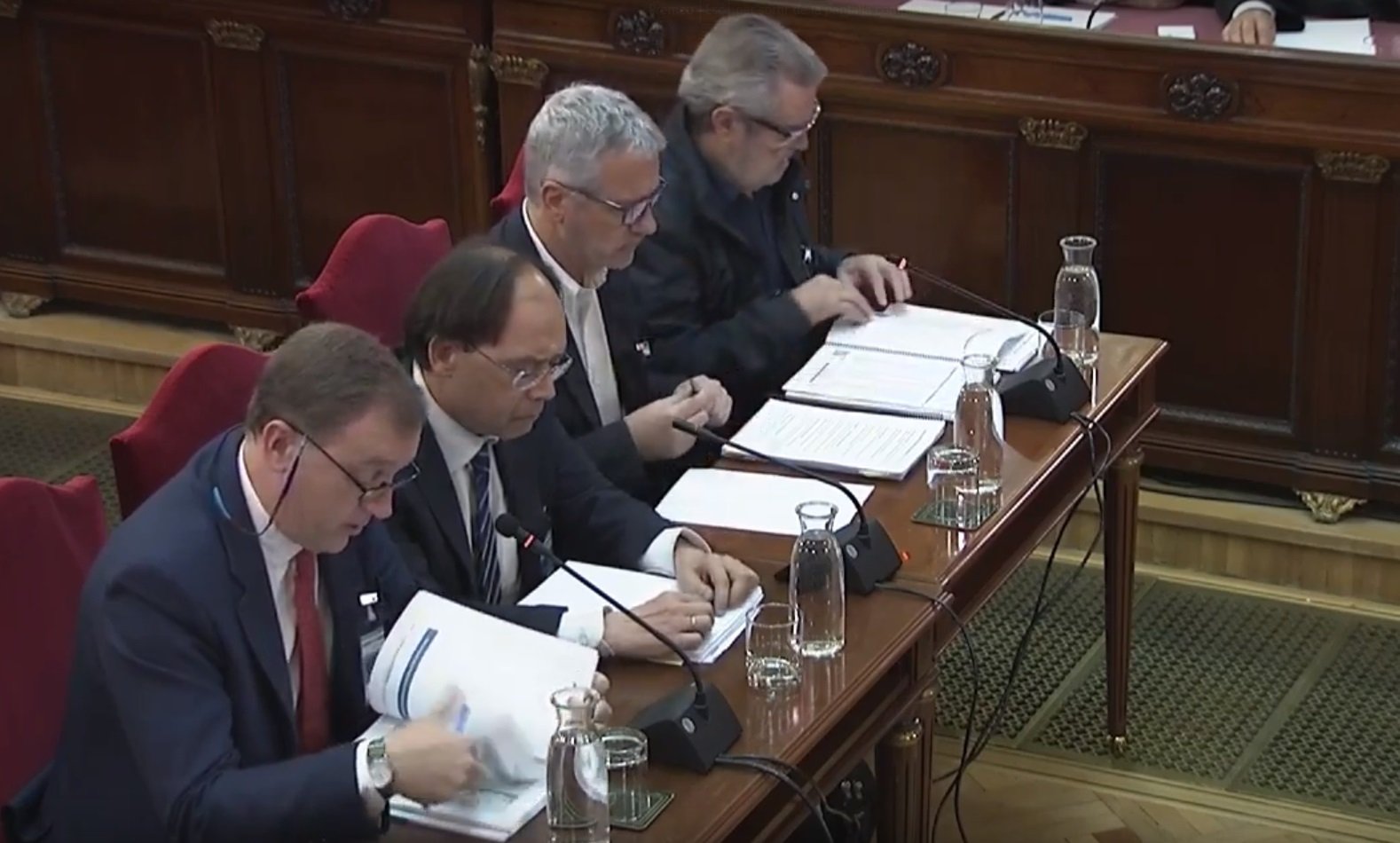The Catalan independence trial is already into its fourth month, and it seems even the judges want to pick up the pace and get it done. Today, presiding judge Manuel Marchena brought in two teams of expert witnesses who had produced rival reports on the use of buildings as polling stations during the referendum. This gave an almost unheard of situation as the teams, one requested by prosecutors and the state's lawyers, one by defence counsel for Dolors Bassa, could respond to each other in court and in real time.
The real estate experts had been asked to estimate the market cost of renting the buildings used as polling stations for the referendum on 1st October 2017. The prosecution team, Carlos Javier Irisarri and José Manuel Càmara, from the firms SEGIPSA and Ibertasa respectively, valued the use of buildings that day at up to 900,000€ (£800,000; $1,000,000).
The defence team, Jordi Duatis and Joan Güell from the College of Architects of Catalonia, on the other hand, said it was impossible to make such a calculation. They argued, for example, that many of the building used were public buildings or belonged to religious or sporting organisations and were not on the market, whilst their colleagues had made their calculations as if they were in private hands, using the properties' cadastral values. Their colleagues called by the prosecution admitted that they had carried out a "hypothetical" exercise of calculating what they called a "reasonable value" as if the properties in question had been rented on the normal market.
Duatis and Güell also noted the prosecution experts' calculation was based on the size of the entire building in each case, not the space used for voting, which could be notably smaller. And they questioned the decision to consider the cost for renting the spaces in question for 24 hours, when polling stations were open for less than half that time.

